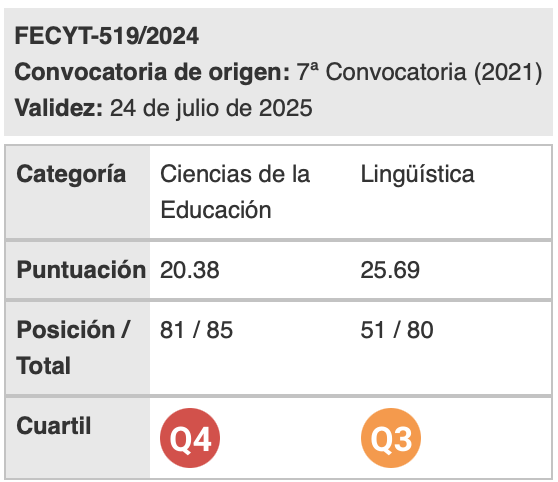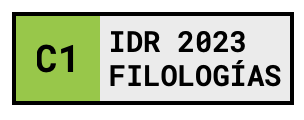LSP and the Need to Work on Professional Skills in Technical Degrees
Keywords:
English for Specific Purposes, empiric research, professional skillsAbstract
In this paper we show the empiric research we carried out in the academic year 2013-14. We intend to emphasize the role of English for Specific Purposes (ESP) and more concretely English for Occupational Purposes in the professional and academic field. From our experience in the classroom, our working hypothesis was to determine to what extent can a project like this help diagnose the main problems students meet when they do an academic presentation. This piece of research was conducted with students who were in their last course of Management Engineering (designed for defence) and who are expected to defend their End Degree Project in English. These students are also expected to develop their professional career in multilingual scenarios using English as a vehicle of communication (getting a B2 level from the Common European Framework of Reference for Languages). The methodology we used was twofold. On the one hand, we gave them some clues to prepare fully academic presentations. Afterwards, they had to defend their presentation in front of a board and answer their questions. In this phase we took notes, filled a template and gave them feedback to improve their skills. On the other hand, students had to fill surveys about the experience and possible formulas of improvement. The analysis of the surveys gave us valuable feedback to implement in our future teaching of the skill.
In conclusion, any other teacher in his or her ESP classroom could replicate this experience, which we have found tremendously illuminating since these results revealed our syllabus weaknesses. Second, this experience helped our students to be communicatively successful in their technical tasks. In addition, this type of empirical piece of research not only contributes to raise awareness around the need of keeping working with and researching about ESP but also contributes to previous research in Applied Linguistics.
Downloads
Downloads
Published
How to Cite
Issue
Section
License
Authors who publish with this journal agree to the following terms:
- Authors retain copyright and grant the journal right of first publication with the work simultaneously licensed under a Creative Commons Attribution License that allows others to share the work with an acknowledgement of the work's authorship and initial publication in this journal.
- Authors are able to enter into separate, additional contractual arrangements for the non-exclusive distribution of the journal's published version of the work (e.g., post it to an institutional repository or publish it in a book), with an acknowledgement of its initial publication in this journal.
- Authors are permitted and encouraged to post their work online (e.g., in institutional repositories or on their website) prior to and during the submission process, as it can lead to productive exchanges, as well as earlier and greater citation of published work (See The Effect of Open Access).

Revista de Lenguas para fines específicos is licensed under a Creative Commons Reconocimiento-NoComercial-SinObraDerivada 4.0 Internacional License.
























